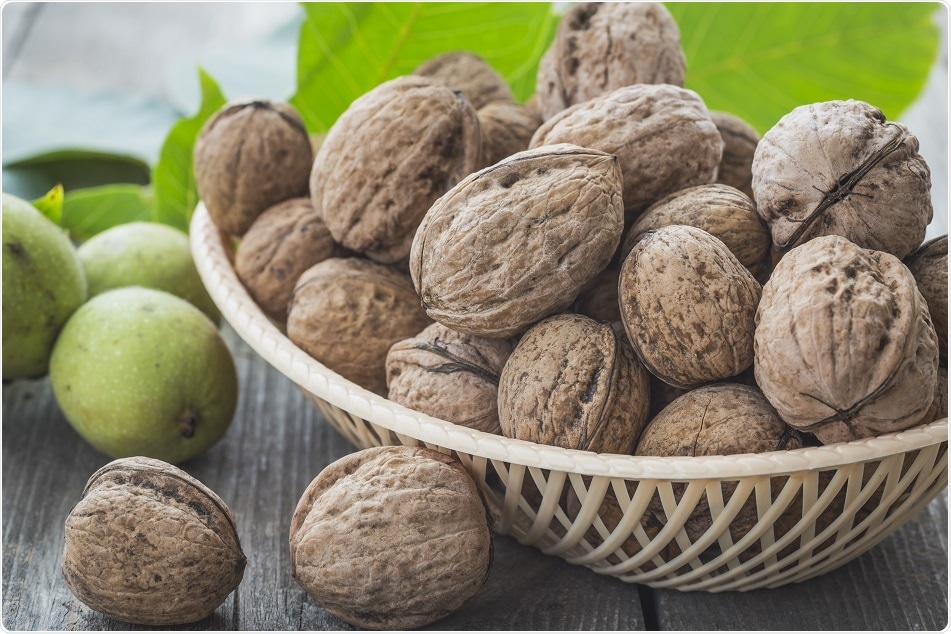Scientists have shown that eating walnuts activates a region of the brain involved in the control of hunger and food cravings, which could explain why people report feeling full after eating them.

© Auhustsinovich / Shutterstock.com
Walnuts are thought to discourage overeating by making people feel full and their consumption is recommended for people with type 2 diabetes and/or obesity. However, the mechanisms by which walnuts improve appetite control are largely unknown.
To investigate, researchers from the Beth Israel Deaconess Medical Center (BIDMC) carried out a brain imaging study that has shown the neurocognitive impact eating nuts has on the brain.
We know people report feeling fuller after eating walnuts, but it was pretty surprising to see evidence of activity changing in the brain related to food cues, and by extension what people were eating and how hungry they feel."
Olivia Farr, first author of the study, Division of Endocrinology, Diabetes and Metabolism at BIDMC
The team invited 10 obese individuals to live in the Clinical Research Center at BIDMC for two five-day sessions, during which they drank smoothies on a daily basis that contained either 48 grams of walnuts or no walnuts (placebo).
The placebo smoothie tasted exactly the same as the walnut drink. The participants’ brains were then observed using function magnetic resonance imaging (fMRI) to see whether eating walnuts had had any effect on the neural control of appetite. The study was a “double-blind” trial, meaning neither the researchers nor the participants knew at the time, during which session walnuts were being consumed.
As reported in Diabetes, Obesity and Metabolism, the participants reported feeling less hungry during the walnut-consuming session than they did during the placebo-consuming session. To investigate further, fMRI tests were performed during which participants were shown images of desirable foods such as hamburgers, neutral objects such as rocks and less desirable foods such as vegetables.
On viewing the highly desirable foods, there was increased activation in a brain area called the right insula after participants had eaten walnuts for five days. This area of the brain is thought to regulate hunger and food cravings, which would enable the participants to focus more easily on sensible food choices and select healthier or less desirable foods over the less healthy, highly desirable foods.
We know there's no ambiguity in terms of the study results. When participants eat walnuts, this part of their brain lights up, and we know that's connected with what they are telling us about feeling less hungry or more full."
Christos Mantzoros, director of the Human Nutrition Unit at BIDMC.
Mantzoros says the team now have a good tool that can provide a biological readout of people’s brains. Studies such as these could help researchers understand how other foods or chemicals such as hormones affect appetite control, which could pave the way for new obesity treatments.
"We plan to use it to understand why people respond differently to food in the environment and, ultimately, to develop new medications to make it easier for people to keep their weight down," concludes Mantzoros.